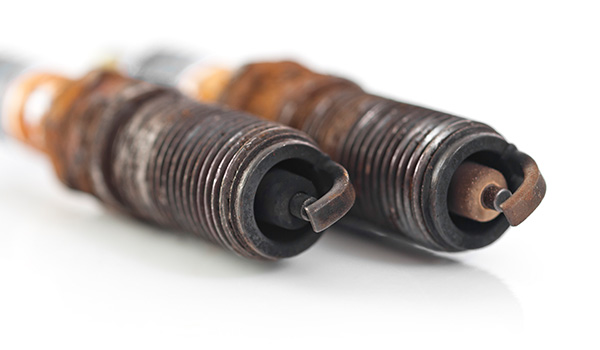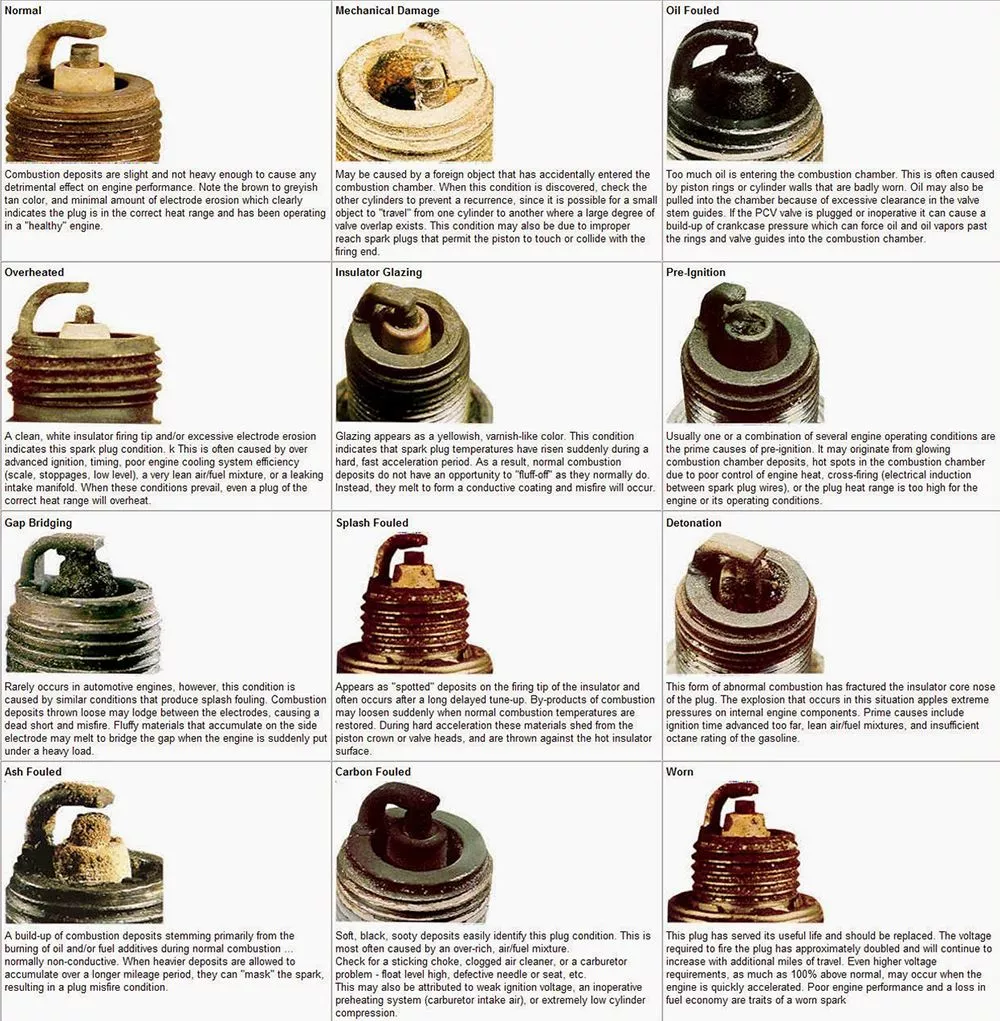A spark plug can foul due to several issues. Common causes include oil contamination, carbon buildup, and improper fuel mixture.
When your engine misfires or runs poorly, a fouled spark plug might be the culprit. Spark plugs are vital for engine performance, igniting the air-fuel mixture in the cylinders. When they fail, your engine’s efficiency drops, and you may experience rough idling or difficulty starting.
Understanding the causes can help you maintain your vehicle better. This guide will explore the common reasons behind spark plug fouling, helping you identify and address them before they lead to more serious problems. Let’s dive in and keep your engine running smoothly.
Introduction To Spark Plug Fouling
Engine misfires are a common symptom. Misfires can cause jerky movements. Poor fuel economy is another sign. The car uses more fuel than normal. Hard starting might happen too. The engine takes time to start. Rough idling is also a clue. The engine feels shaky at idle. Loss of power occurs often. The car feels weak while driving. All these are signs of spark plug fouling.
Fouled spark plugs can harm the engine. They can reduce engine life. Addressing early can save money. Ignoring the issue can cause bigger problems. Simple checks can prevent damage. Regular maintenance helps a lot. Clean or replace spark plugs on time. This keeps the engine healthy. Always check for symptoms. Early action is key.

Credit: www.aa1car.com
Oil Contamination
Oil contamination often causes a spark plug to foul. This can lead to engine misfires and reduced performance. Regular maintenance helps prevent this issue.
Leaking Valve Seals
Leaking valve seals allow oil to seep into the combustion chamber. This oil burns alongside the fuel. It leaves behind carbon deposits. These deposits build up on the spark plug. This buildup interferes with the spark plug’s ability to ignite the fuel-air mixture. The spark plug becomes fouled and the engine misfires. Regular maintenance can help identify and fix this issue.
Worn Piston Rings
Worn piston rings permit oil to pass into the combustion chamber. The oil then burns during combustion. It causes the same carbon deposits as leaking valve seals. The spark plug gets coated in these deposits. This coating reduces the spark plug’s effectiveness. It leads to misfiring and poor engine performance. Replacing worn piston rings is necessary to prevent this problem.
Fuel Issues
A rich fuel mixture means too much fuel and not enough air. This can cause carbon to build up on the spark plug. The plug may then foul and stop working properly. Regular checks can help catch this early.
Poor fuel quality can harm your spark plug. Dirty or low-quality fuel leaves more deposits. These deposits can cover the spark plug. This makes it hard for the plug to ignite the fuel. Always use good quality fuel to avoid this issue.
Carbon Buildup
Carbon buildup on spark plugs can occur due to incomplete combustion. This often results from poor fuel quality or a rich fuel mixture.
Incomplete Combustion
Incomplete combustion leads to carbon buildup. This happens when fuel does not burn fully. The leftover carbon sticks to the spark plug. The buildup affects the spark plug’s function. The engine may misfire or run poorly. Keeping the engine in good condition helps prevent this issue.
Short Trips
Short trips can also cause carbon buildup. Engines need to reach a certain temperature to burn fuel fully. Short trips do not allow the engine to warm up enough. This results in carbon deposits on the spark plug. Taking longer trips can help keep the engine and spark plugs clean.
Overheating Problems
Cooling system failures can lead to spark plug fouling. The engine may overheat. This makes the spark plugs dirty. The cooling system must work properly. If it does not, the engine gets too hot. This can damage the spark plugs. The coolant level must be correct. A low coolant level is bad for the engine. Also, the radiator must be clean. A dirty radiator blocks airflow. This causes the engine to overheat. Regular maintenance of the cooling system is crucial. Check for leaks. Fix them quickly. Replace old coolant. This keeps the system in good condition.
Using the incorrect spark plug type can also cause fouling. Spark plugs come in different types. Each type is for a specific engine. Using the wrong type can cause problems. The spark plug may overheat. It can get dirty quickly. Always use the correct type. Check the car manual. It will tell you the right spark plug. Using the correct spark plug helps keep the engine running well.

Credit: www.autosuccessonline.com
Mechanical Failures
Damaged spark plug wires can cause many problems. Worn or cracked wires fail to deliver electricity. This can lead to misfires. Misfires make the engine run poorly. It can also cause the spark plug to foul. Dirty plugs affect engine performance. Regular checks can prevent issues. Replace faulty wires at once.
A faulty ignition coil creates weak sparks. Weak sparks cannot ignite fuel properly. This causes the engine to misfire. Misfires lead to fouled spark plugs. Dirty spark plugs harm engine function. Regular checks are important. Replace faulty coils promptly. Good coils ensure strong sparks. This keeps the engine running smoothly.
Environmental Factors
Environmental factors such as dust, humidity, and extreme temperatures can cause spark plugs to foul. These conditions affect the combustion process, leading to deposits on the spark plug.
Cold Weather
Cold weather can make engines hard to start. The engine may need more fuel to start. This extra fuel can cause the spark plugs to foul. Fouled spark plugs can lead to poor engine performance. In cold weather, the air-fuel mixture can be too rich. This means there is too much fuel and not enough air. This can cause carbon deposits on the spark plugs. These deposits can prevent the spark plugs from firing properly.
High Altitude
High altitude means less oxygen in the air. Engines need oxygen to burn fuel. With less oxygen, the air-fuel mixture can be too rich. This can cause the spark plugs to foul. Fouled spark plugs can make the engine run poorly. It can also cause the engine to be hard to start. At high altitudes, engines may need adjustments. This can help prevent spark plug fouling.
Preventive Measures
Dirty air filters, oil leaks, or incorrect fuel mixture can cause a spark plug to foul. Regular maintenance and timely replacement help prevent these issues.
Regular Maintenance
Regular maintenance is key to keeping spark plugs clean. Check spark plugs often. Clean them if they are dirty. Replace them if they are worn out. This helps in avoiding engine problems. It also improves fuel efficiency. Always follow the car manual for maintenance schedules. This ensures the car runs smoothly. Keeping the engine in good condition is important. It prevents many issues.
Choosing The Right Spark Plugs
Choosing the right spark plugs is crucial. Use spark plugs recommended by the car manufacturer. This ensures compatibility. The right spark plugs improve engine performance. They also last longer. Never use cheap or low-quality spark plugs. They wear out quickly. This can cause engine problems. Always buy spark plugs from trusted brands. This ensures reliability and durability.
Fixing A Fouled Spark Plug
Dirty or contaminated fuel, oil leaks, or running too rich can cause a spark plug to foul. This leads to misfiring, poor performance, and can damage the engine if not addressed promptly.

Credit: finntrail.com
Conclusion
A fouled spark plug can cause engine problems. Regular maintenance can prevent this. Check for oil leaks, rich fuel mixture, or worn-out parts. Clean or replace spark plugs as needed. This ensures better engine performance. Following these tips will keep your engine running smoothly.
Save money on repairs and enjoy a reliable ride.
